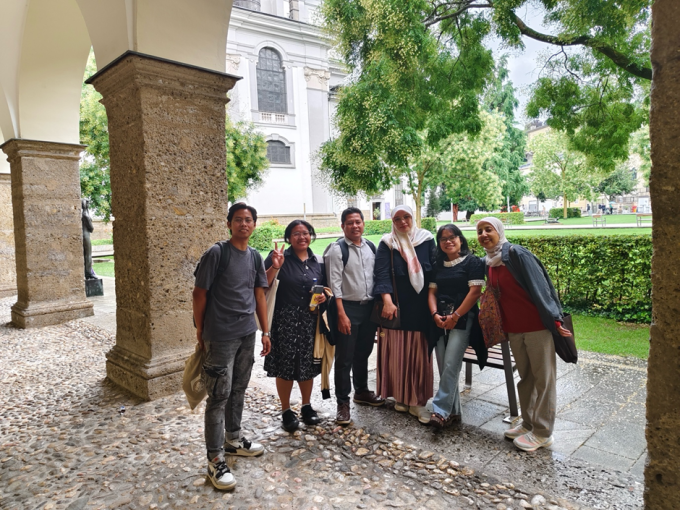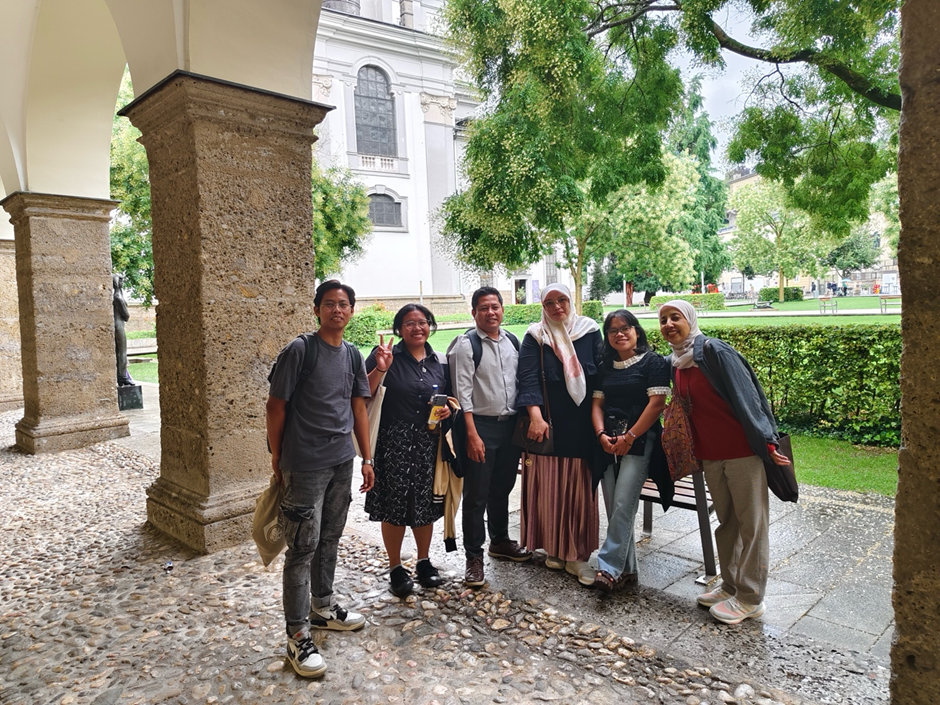

The Religious Studies and Cross-Cultural Program (ALB) of the Graduate School (SPs) at Gadjah Mada University (UGM) sent two students and two faculty members to share experiences and research with international academics at the CROSS-CULTURE Religious Studies Summer School held in Salzburg, Austria. The event, which took place from July 27th to August 2nd 2024, was organized in collaboration with Dongguk University Seoul, University of Haifa, College of Interreligious Studies/House of Cultures and Religions Munich, University of Nairobi, and Paris Lodron University Salzburg.
Various violent conflicts occurring worldwide and in Indonesia are sometimes inseparable from religious justification or identity. Although these events are not always initiated by religious motivations, the characteristics of religion can exacerbate violence due to the strong influence of religion and religiosity in human life. However, religion can also provide solutions for conflict resolution and even encourage the creation of sustainable peace.
These issues were discussed by representatives from the Center for Religious and Cross-Cultural Studies (CRCS) at Gadjah Mada University (UGM) or the Master’s Program in Religious Studies and Cross-Cultural Studies (ALB) of UGM Graduate School. Presentations and discussions by faculty and students revealed that religion is also involved in violent events around the world. Professor Grace Darling from Banaras Hindu University explained ethnic-based conflicts in India, which are also intertwined with religious elements.
In Africa, there are several cases of violence discovered by Professor Edith Kayel Chamwama from the University of Nairobi. She found that each African country’s government strives to create policies to end conflicts, often by engaging various religious organizations. However, these policies are not always uniformly applicable as they need to be adjusted to local contexts, including how religion develops within those societies.
The research presented during the summer school demonstrated that religion is somewhat involved in conflicts. Nevertheless, religion also plays a significant role in promoting conflict resolution and peacebuilding. Prof. Fatima Hussein from ICRS UGM emphasized that interfaith relationships contribute to creating peace, particularly in Indonesia. She found that interfaith dialogue in Indonesia involves three parties: the government, civil society organizations, and academics. CRCS UGM involvement in this issue is beyond studying the issues, it also includes advocacy and conflict resolution in collaboration with government agencies and non-governmental organizations.
This summer school was an opportunity for students and faculty from various countries to meet. The presentations and discussions served as a platform for exchanging ideas and experiences to find joint solutions while striving for continued involvement of religion in global peacebuilding.
This activity also aligns with the implementation of SDGs Number 4: Quality Education; SDG 10: Reduced Inequality; SDG 16: Peace, Justice, and Strong Institutions; and SDG 17: Partnerships to Achieve the Goals.
Author: Astrid Syifa Salsabila
Editor: Arni Wistratun
